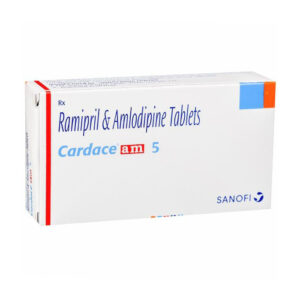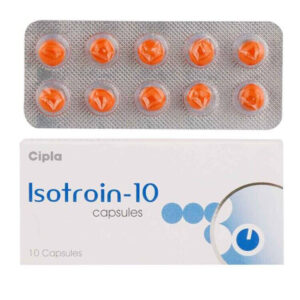What is this drug used for?
• It is used to add estrogen to the body when the ovaries have been taken out or do not work the right way.
• It is used to put off soft, brittle bones (osteoporosis) in women after change of life.
• It is used to prevent or lower the signs of the change of life (menopause).
• It is used to treat vaginal bleeding.
• Rarely, it is used to treat breast or prostate cancers.
• It may be given to you for other reasons. Talk with the doctor.
Frequently reported side effects of this drug
• Hair loss
• Enlarged breasts
• Leg cramps
• Abdominal cramps
• Bloating
• Nausea
• Vomiting
• Injection site irritation
Other side effects of this drug: Talk with your doctor right away if you have any of these signs of:
• Gallstones like pain in the upper right abdominal area, right shoulder area, or between the shoulder blades; yellow skin; or fever with chills.
• Severe cerebrovascular disease like change in strength on one side is greater than the other, difficulty speaking or thinking, change in balance, or vision changes.
• Blood clots like numbness or weakness on one side of the body; pain, redness, tenderness, warmth, or swelling in the arms or legs; change in color of an arm or leg; chest pain; shortness of breath; fast heartbeat; or coughing up blood.
• Liver problems like dark urine, fatigue, lack of appetite, nausea, abdominal pain, light-colored stools, vomiting, or yellow skin.
• Pancreatitis like severe abdominal pain, severe back pain, severe nausea, or vomiting
• Change in sex drive
• Severe headache
• Severe dizziness
• Passing out
• Pelvic pain
• Vision changes
• Blindness
• Bulging eyes
• Contact lens discomfort
• Lump in breast
• Breast soreness or pain
• Nipple discharge
• Abnormal vaginal bleeding
• Vaginal pain, itching, and discharge
• Depression
• Mood changes
• Edema
• Trouble with memory
• Signs of a significant reaction like wheezing; chest tightness; fever; itching; bad cough; blue skin color; seizures; or swelling of face, lips, tongue, or throat.
Note: This is not a comprehensive list of all side effects. Patient should consult prescriber for additional questions.
Pronunciation
(ES troe jenz KON joo gate ed, EE kwine)
Medication Safety Issues
Sound-alike/look-alike issues:
Premarin may be confused with Primaxin, Provera, Remeron
Geriatric Patients: High-Risk Medication:
Beers Criteria: Estrogens (oral or topical patch products only), with or without progestins, are identified in the Beers Criteria as potentially inappropriate medications to be avoided in patients 65 years and older (independent of diagnosis or condition) due to their carcinogenic potential (breast and endometrium) and lack of cardioprotection or cognitive protection in older women. Low-dose intravaginal estrogen (vaginal creams or tablets) are acceptable for dyspareunia, recurrent lower urinary tract infections, and other vaginal symptoms. Of note, women with a history of breast cancer not responding to non-hormonal therapies are advised to discuss the risks/benefits of low dose vaginal estrogen (estradiol less than 25 mcg twice weekly) with their healthcare provider (Beers Criteria [AGS 2019]).
Pharmacy Quality Alliance (PQA): Estrogens (oral, topical patch, and topical gel products only), with or without progestins, are identified as high-risk medications in patients 65 years and older on the PQA’s, Use of High-Risk Medications in the Elderly (HRM) performance measure, a safety measure used by the Centers for Medicare and Medicaid Services (CMS) for Medicare plans (PQA 2017).
Generic Availability: US
No
Storage and Stability
Injection: Refrigerate at 2°C to 8°C (36°F to 46°F) prior to reconstitution. Use immediately following reconstitution.
Tablets: Store at room temperature 20°C to 25°C (68°F to 77°F).
Adverse Reactions
Reported in postmenopausal women following oral use.
Central nervous system: Depression, dizziness, headache, nervousness, pain
Dermatologic: Pruritus
Gastrointestinal: Abdominal pain, diarrhea, flatulence
Genitourinary: Leukorrhea, mastalgia, vaginal hemorrhage, vaginitis, vulvovaginal candidiasis
Local: Injection site phlebitis, pain at injection site, swelling at injection site
Neuromuscular & skeletal: Arthralgia, back pain, leg cramps, weakness
Respiratory: Increased cough, pharyngitis, sinusitis
Rare but important or life-threatening: Abnormal uterine bleeding, alopecia, anaphylaxis, angioedema, bloating, breast hypertrophy, breast tenderness, cerebrovascular accident, change in cervical secretions, change in libido, chloasma, cholestatic jaundice, contact lens intolerance, decreased glucose tolerance, deep vein thrombosis, dementia, dysmenorrhea, edema, endometrial carcinoma, endometrial hyperplasia, erythema multiforme, erythema nodosum, exacerbation of asthma, exacerbation of epilepsy, exacerbation of hepatic hemangioma, exacerbation of porphyria, fibrocystic breast changes, galactorrhea, gallbladder disease, growth potentiation of benign meningioma, gynecomastia, hirsutism, hypersensitivity reaction, hypertension, increased serum triglycerides, irritability, ischemic colitis, malignant neoplasm of breast, migraine, mood changes, myocardial infarction, nausea, nipple discharge, ovarian carcinoma, pancreatitis, pelvic pain, pulmonary embolism, retinal thrombosis, skin rash, superficial venous thrombosis, thrombophlebitis, urticaria, uterine fibroids (increased size), vomiting, vulvovaginal candidiasis, weight changes
–




